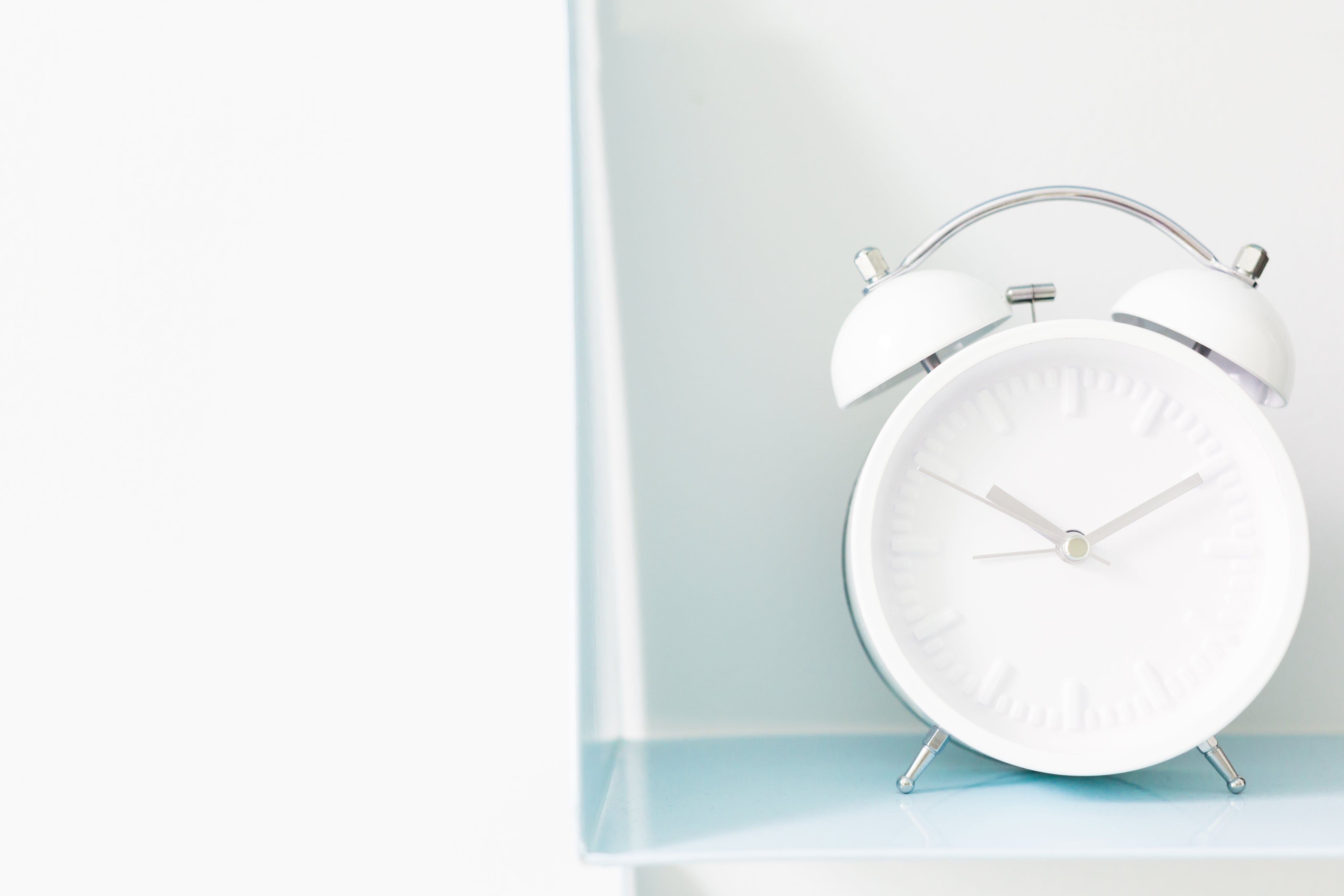
Getting a good night’s sleep in times of stress and worry
Throughout our lives we inevitably experience periods of stress and worry. During these times,
one aspect of our everyday life that can be seriously impacted is our quality of sleep. Unfortunately,
once our sleep starts to be affected, this can actually produce more stress hormones during the
day, so that we continue to sleep badly each night. It’s a vicious cycle that we need to try and break.
At Cyberjammies we’re passionate about helping people to sleep well and whilst we know our super-comfy
nightwear can help, we’ve been looking at other ways to help you get off to sleep and get a good night’s rest.
When you’re stressed or worried, it’s even more important to get into good habits. These
will set you up for a good night’s sleep and can help to break the cycle of stress and sleep
problems. Good sleep habits actually begin during the day, here are a few things you can try:
Daytime

- Start each day at the same time: Whilst you may have not have slept well during the night, trying to catch up by laying in may be counter-productive, as when bedtime comes around again, you may not be tired enough to fall asleep. Try to set a clear wake-up time each day. It might be tricky at first but if you stick to a routine, you’re more likely to fall asleep at bedtime.

- No to naps: Similarly, it can be tempting to try and catch up on sleep by taking a daytime nap. For some people this can actually make them feel worse, as they wake up groggy but taking an afternoon nap may also mean you're still wide awake when it comes to bedtime. Instead of a quick snooze, why not try getting some fresh air to refresh you.

- Exercise early: Making physical exercise a part of your daily routine is often recommended when it comes to solving sleep problems. If you’re fond of high intensity activities though, it may worth getting the done early in the day. Some experts recommend not doing heart pumping exercises in the three hours leading up to bedtime, as they may actually keep you awake. Yoga and walking on the other hand have been shown to be good evening activities to help you drift off.

- Put it on paper: If you go to bed with a busy mind, it can be a good idea to keep a notebook handy and during the day, jot down all the things you need to do. Capturing them all in one place, can help you to feel calmer about what you need to do and will help your mind to stop whirring, when it should be settling down. Likewise, making a plan for the next day, as you finish the current one can stop you from churning things over in your head when you’re trying to get off to sleep.
Evening
As you head into the evening, you can carry on preparing for a great night’s sleep by trying a
few of the techniques below (many of which are also just really nice things to do)

- Set a strict bedtime: In a similar way to the morning, having a set bedtime, can also help you get off to sleep quickly. If you go to bed at varying times, your body won’t get into a routine. Having a fixed time to go to bed and wake up, helps your body’s natural clock and will help you to fall asleep more naturally. Within reason, it’s worth trying to stick to this at weekend’s too. Staying up or laying in will mess up the routine you’ve created all week.

- Switch it off: These days we’re all pretty dependant on our phones, tablets and electronic devices. We know deep down that we shouldn’t really look at them before bed but in reality, they are just too addictive. The blue light emitted from smartphones and tablets can have a negative effect on us getting off to sleep. If you can’t break out of this habit, there are a few things you can try. Set a downtime limit on your phone or tablet and if you’ll be tempted to override it, then get someone else in your household to set a passcode on it. Tell them in advance not to give it to you unless it’s an emergency. If you use your phone as your morning alarm, it could be worth thinking about getting an old-fashioned alarm clock and leaving your phone in another room. This can help reduce the temptation for some late-night scrolling. If you really need to have your phone in your room, then try plugging it in well away from your bed.
Time for tea:
Unless you know for certain that it doesn’t affect you, avoid caffeine before bedtime, as it
can keep you awake. Likewise, alcohol can disturb your sleep, so it’s worth trying to keep
this to a minimum or cutting it out completely, if you have sleep problems. Try instead to
drink a cup of herbal tea. Chamomile can have a soothing effect and we particularly like
some of the specific bedtime teas that are around such as Pukka’s night time.
Soak stress away:
Now we’re getting to the good bit. Having a relaxing bath before bed is a great way to
switch off from the day and put any worries aside. A warm bath has a soothing effect and
adding a relaxing bubble bath or essential oils, will add to the effect. Try to create a calm
atmosphere by lighting a candle and playing some chilled music.
Practice mindfulness:
To soothe a busy mind and get your body ready for sleep, you could try mindfulness or
bedtime yoga. Focusing on your breathing creates a calm feeling before bed and can help
you drift off into a deep sleep. If you’re not sure how to practice mindfulness, we
recommend the Calm app, which has meditation exercises specifically designed for sleep, as
well as some soothing bedtime stories too. If you’d like to give yoga a try, the Yoga with
Adriene channel on YouTube has some great videos which vary in length and have helpful
titles that tell you exactly what they’re for. We particularly like “Yoga for Inner Peace”.
Sleep scents:
Another great way to help you drift off into natural sleep is to use essential oils. Lavender is
well known for its soothing properties but other oils you could try include jasmine, rose,
bergamot or ylang ylang. Experiment with the ones you like the most and find relaxing. You
could use a burner, infuser or see if your favourite oil is available as a pillow spray.
Relax your way:
Not everyone will want a warm bath before bed. Others may not like essential oils and maybe
mindfulness just isn’t for you. If this is the case, then find something that works for you. Find a
way to distract your mind from its worries by engaging in something else before bed. This could be
listening to music, reading a book, knitting or doing a jigsaw puzzle, word search search crossword
Whatever it is, make sure it’s something that will completely distract you. There are no right or wrong
answers and you might want to experiment until you find your perfect wind down technique.





























